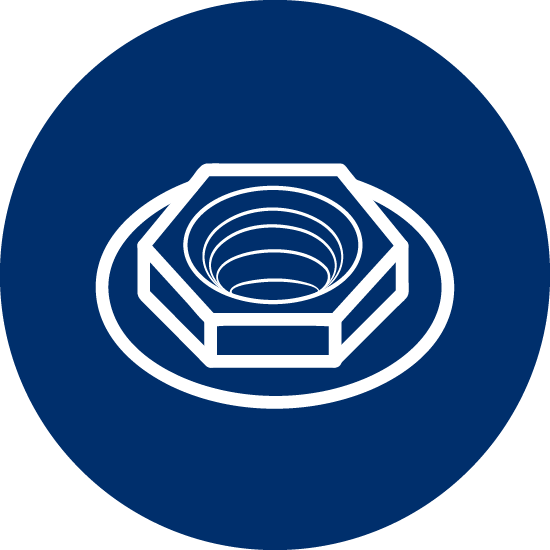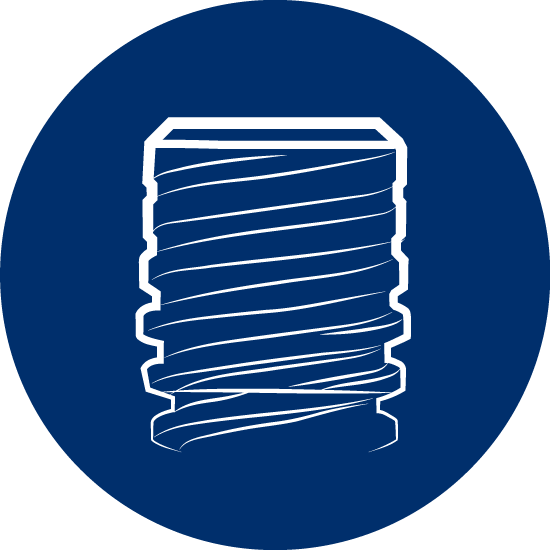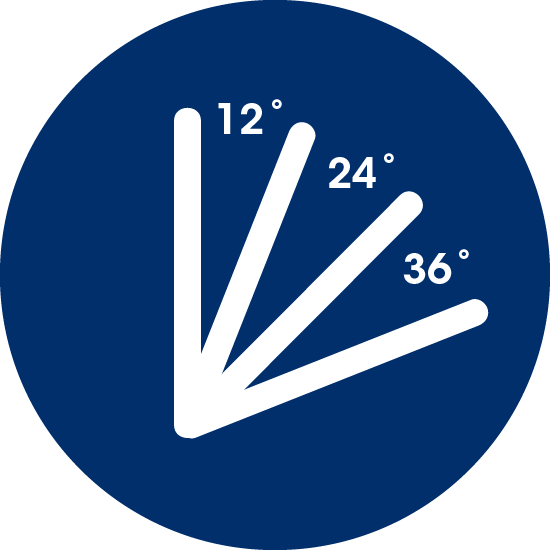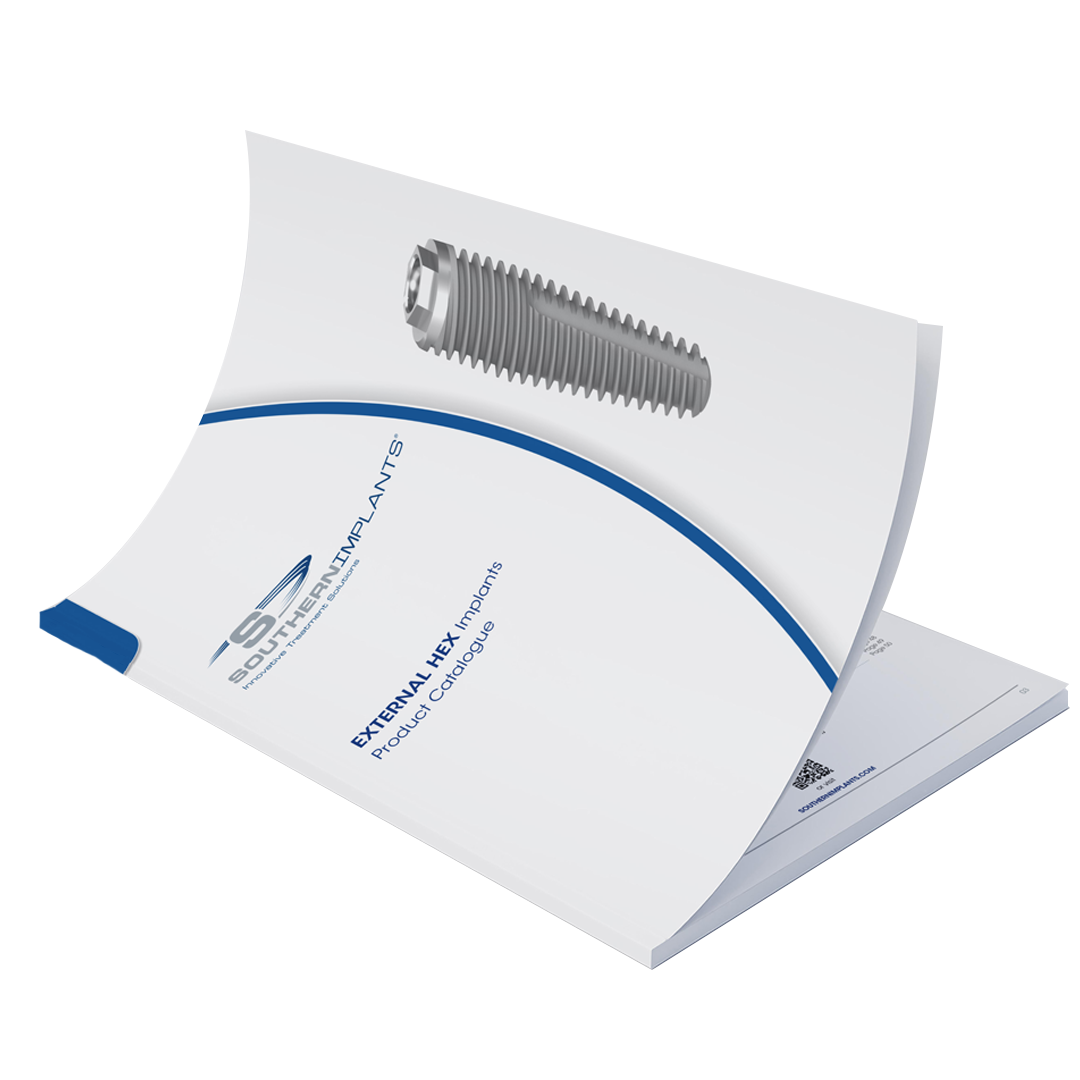External Hex Implants
An established connection
with a
Long history of clinical success
External Hex
Implants
An established connection with a
long history of clinical success
External Hex
Implants
An established connection with a
long history of clinical success
The External Hex Implant Solution
The External Hex interface is the most established connection system on the market and the preferred choice for many training institutions and top-end users. Many clinicians worldwide continue to prefer the External Hex for its ease of use, widespread availability, long history of clinical success and from mere personal preference.
It is also known to be more “forgiving” in situations of impassive fit or implant divergence. Southern Implants has therefore continued to refine its External Hex range, to provide its loyal supporters with exceptional reliability alongside proven modern features.
–
External Hex
Connection
More “forgiving” in
situations of impassive
fit or implant divergence
–
3 mm MSC Section
Decreases bacterial
adhesion and risk
of peri-implantitis
–
MAX Enabled
For immediate
molar replacement
therapies
–

–

–

–
–

–
–
High Strength
Titanium
Enables exceptional
fatigue strength
functionality
–
Co-Axis® Enabled
12°, 24° and 36° platform corrections allow optimal use of available bone
–
SInergy Surface
Alumina-blasted surface
with over 20 years
of clinical results

External Hex Connection
More “forgiving” in situations of impassive fit or implant divergence

3 mm MSC Section
Decreases bacterial
adhesion and risk of
peri-implantitis

Co-Axis® Enabled
12°, 24°, 36° platform corrections allow optimal use of available bone
High Strength Titanium
Enables exceptional
fatigue strength
functionality

MAX Enabled
For immediate molar replacement therapies
SInergy Surface
Alumina-blasted surface
with over 20 years
of clinical results

Technical Facts
- Available in lengths ranging from 6 – 18 mm
- Available in diameters:
- Standard implants: ⌀3 mm, ⌀3.25 mm, ⌀3.75 mm, ⌀4 mm, ⌀5 mm and ⌀6 mm
- MAX implants: ⌀6 mm, ⌀7 mm and ⌀8 mm
- Co-Axis® enabled: available in angulations of 12°, 24° and 36°
- Moderately rough surface with 15 years of clinical evidence
- Available with a MSC (Machined Surface Coronal) hybrid surface
- SInergy moderately rough surface
- Available in tapered and cylindrical body shapes
Surgical Benefits
- Expansive range of body shapes, lengths, diameters, platform angulations and specialised designs
- Co-Axis® enabled: available in angulations of 12°, 24° and 36°
- MAX implants available in 6.0 mm, 7.0 mm in 8.0 mm diameters
- Available with a MSC (Machined Surface Coronal) hybrid surface for easier coronal debridement
Prosthetic Benefits
- Classic, trusted connection with sought-after modern features
- Forgiving interface for implant divergence
- Widest range of prosthetic options for treatment of single tooth, partial or full edentulism

Catalogues and Brochures
Instructions For Use (IFU)
Documents
- Drill Usage Guide: External Hex
- How to remove a fixture mount that is too tight
- Radiographic Stent: External Hex Parallel Walled
- Radiographic Stent: External Hex Tapered, Straight
- Radiographic Stent: External Hex Tapered – Co-Axis®
- Radiographic Stent: INVERTA® External Hex – Straight
- Radiographic Stent: INVERTA® External Hex – Straight
References
Ribeiro, C.G., Maia, M.L.C., Scherrer, S.S., Cardoso, A.C. and Wiskott, H.W., 2011. Resistance of three implant-abutment interfaces to fatigue testing. Journal of Applied Oral Science, 19, pp.413-420.
Zembic, A., Kim, S., Zwahlen, M. and Kelly, J.R., 2014. Systematic review of the survival rate and incidence of biologic, technical, and esthetic complications of single implant abutments supporting fixed prostheses. International journal of oral & maxillofacial implants, 29.
Vandeweghe S, Hawker P, De Bruyn H. An Up to 12-Year Retrospective Follow-Up on Immediately Loaded, Surface-Modified Implants in the Edentulous Mandible. Clin Implant Dent Relat Res. 2016 Apr;18(2):323-31.
Vandeweghe S, Ferreira D, Vermeersch L, Mariën M, De Bruyn H. Long-term retrospective follow-up of turned and moderately rough implants in the edentulous jaw. Clin Oral Implants Res. 2016 Apr;27(4):421-6.
